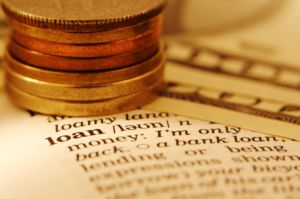Personal Loan Basics
What should you look for when choosing a personal loan?
A personal loan is a standard method of borrowing money from a building society, bank or specialist loan company. Loans can be anything up to £15,000 and the payback period can be anything from six months to ten years, depending on your financial situation.
 You can have either a secured loan or an unsecured loan. A secured loan is one that is tied to something that you own of very high value – that is usually your house. This means that if you can’t keep up your repayments, you might have to sell your home to help you to pay back the loan.
You can have either a secured loan or an unsecured loan. A secured loan is one that is tied to something that you own of very high value – that is usually your house. This means that if you can’t keep up your repayments, you might have to sell your home to help you to pay back the loan.
An unsecured loan is not tied up with anything. In this case, if you can’t make the repayments you could instead end up being on a credit blacklist. The result of that might be that you are prevented from taking out new credit cards, or a mortgage, or even an interest-free deal in a shop.
You should shop around to try and get yourself the best deal. The general rule is, the more you borrow, the lower the interest rate. Rates can vary considerably, from maybe as low as 7% way up to 20%.
As well as banks, buildings societies and traditional loan companies, organisations like supermarkets now offer loans too, so it is worth casting your net wide to see what is on offer.
Although annual percentage rate (APR) is supposed to help you compare personal loans, be aware that lenders calculate APR in different ways. There are also usually loans available for specific items, such as a new car, and these can sometimes have lower rates of interest.
It is important that you are comparing like for like. The headline interest rates – those, for example, in building society windows – are always lower than the annual rate you will end up paying. This is often because the rate they suggest is the low rate for a loan of £20,000 or more – and you might only want £5,000, where the rate will be higher. So those headlines can mislead you into thinking you’re going to get a great deal. Look at the small print and work out exactly what you will be repaying.
The money you borrow has to be repaid in monthly instalments over the agreed period of the loan. This length of time is almost always fixed, and therefore is you decide you can and want to pay the loan off early, you may end up paying a penalty. The longer the period of the repayment, the more interest you will end up paying, so it is wise to go for the shortest time you are able to manage.
If you apply for a loan and you are turned down, the lender must tell you the main reasons for saying no.
Flexible loans are becoming more popular. These enable you to pay the money back whenever you want, but the interest rate on these loans is usually higher.
You should read the small print and understand exactly what your monthly repayments will be, and work out the total amount you will be paying back over the loan period.
Tom Smith
1st July 2007
Recent Loan News:
More Information:
-
What are the differences between secured and unsecured loans? Essentially, whether or not the loan is secured by property in the event the borrower defaults on the loan.
-
How do you find the cheapest loan? Through a combination of factors that include understanding your credit score, determining the best type of loan for your purposes, and shopping around
-
Chances are if you were shopping for a home theatre system, you would shop around to find the best deal. So why not shop around for a loan?
-
What is the one thing that all financial advisors tell their clients before committing to any financial agreement? It is the most basic rule of all commerce; do you homework and shop around.
External Links:

